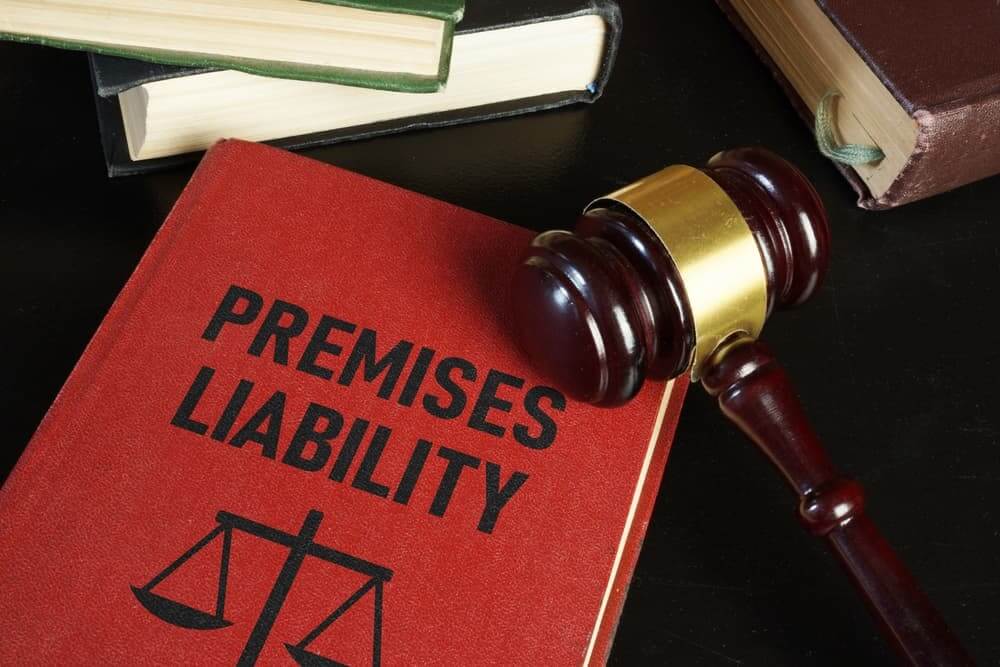If you have suffered an injury on someone else’s property due to a hazardous condition, you may have a premises liability claim. Premises liability law encompasses a broad category of accidents. The unifying theme is that you may have the legal right to substantial financial compensation when you can prove that someone else was responsible for what happened. However, you may face a challenging and arduous legal process before receiving compensation for your injuries.
The best step that you can take (besides tending to your health) is to immediately contact a personal injury lawyer to represent you in the legal process. Your premises liability attorney can battle the insurance company standing in the way of your total financial compensation.
Before they can even go to bat for you, a premises liability attorney will need to do a considerable amount of preparation for your claim or lawsuit. A knowledgeable attorney will understand these laws and how they apply to your situation. They can assess the strength of your case and guide you through the legal process, ensuring that you take the proper steps at the right time. It does not cost you anything from your bank account to get help from a premises liability attorney, and they only get paid if you win your case.
The Levels of Care a Property Owner Owes to Visitors
In a premises liability case, your ultimate success depends on proving that the property owner did not uphold the duty of care they owed you. Generally, there are three different levels of care that a property owner owes (or does not owe) depending on the visitor’s status on the land. The three levels are:
- Invitees should receive the highest duty of care. These people are on the property with the owner’s permission (often for business purposes). The owner must use reasonable care to keep the premises safe and to warn of any known dangerous conditions.
- Licensees are people who have the right to use a property. These are often social guests, and the owner must take reasonable care to protect licensees from known hazards on the property.
- The owner owes no duty of care to trespassers other than to avoid deliberately injuring them.
Here are some types of premises liability accidents that can occur when you are on the property of another.
Slip and Fall
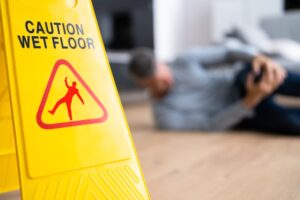
Slip and fall cases are the most common forms of a premises liability accident. These accidents are prevalent, and insurance companies go out of their way to be difficult when you have filed a claim. Insurance companies know they can face a significant liability and will aggressively deny your claim. Even if they accept liability, they may try to minimize your injuries and pay you less.
You can win a slip and fall case by showing that one of the following applies:
- The property owners created the dangerous conditions themselves.
- Someone else created the dangerous condition, yet the property owner failed to take steps to warn you about it or fix the danger within a reasonable amount of time after they knew or should have known about it.
Negligent Security
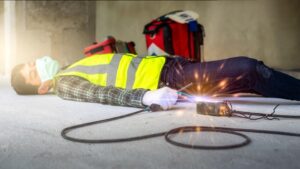
When you are on the property of another, they have a legal obligation to act reasonably to keep you safe. Although they do not have an absolute ability to prevent every single incident, they do have the requirement to act in the face of known dangers. The property owner cannot pretend they do not know about hazards if they are apparent.
The property owner must increase their efforts if there are known security risks and provide reasonable security for you. For example, suppose the property is in an area with a crime or prior incidents. In that case, the owner must hire additional security guards or install bars on the windows. Although negligent security cases can be challenging because you must prove what the property owner should have known, they can result in substantial financial compensation.
Dog Bites
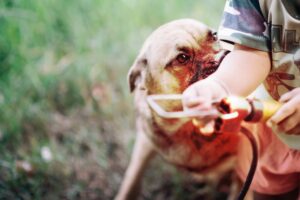
Every year, over four million people are bitten by dogs throughout the United States, and nearly one million people suffer an injury from the bite. These injuries can potentially be serious because they leave lasting scarring and even nerve damage. In the days immediately after the dog bite, you may be at risk of an infection because of all the different types of bacteria in a dog’s saliva.
There are varying rules about liability for dog bites in different states. In some states, there is a rule of strict liability. Although the dog’s owner is not automatically liable when their animal has bitten someone else, the burden of proof shifts to them to give a reason why they should not be responsible (such as the fact that the dog bite victim provoked the animal). Strict liability usually means you will receive compensation for your injuries.
A “one free bite” rule is in effect in other states. You will need to show that the animal previously exhibited dangerous propensities by biting or attacking someone else. A dangerous dog may also have become highly aggressive with another animal.
If you are eligible for dog bite compensation, you must prove the full extent of your damages. There is a lot of literature about average settlement size, but you should throw that out the window and focus on the amount of money you are due.
Swimming Pool Accidents

Swimming pool accidents can happen in several ways, including:
- Drowning in the pool because there was no adequate supervision
- Slipping and falling because there is debris or a hazard in the walking path
- Electrocution because there is faulty wiring that causes an electrical current on the water
- Injuries when a body part gets sucked into a drain
The attractive nuisance doctrine is an additional factor that can impact liability. Children may need a higher duty of care when something like a swimming pool on the property can attract their attention. The property owner may even owe a duty of care to children who have trespassed on their property.
Parking Lot Accidents
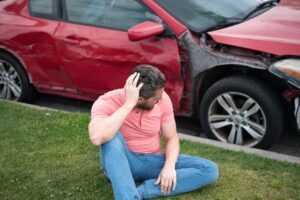
The property owner has a legal obligation to exercise reasonable care throughout their premises, which extends to the parking lot on their property. You may suffer an injury in a parking lot in numerous ways that are the responsibility of the property owners, including:
- Having someone attack you in the parking lot
- Injuries suffered in a car accident because the parking lot was not optimally designed for your safety
- Slipping and falling on broken concrete or ice that has not been cleared in time
Carbon Monoxide Poisoning
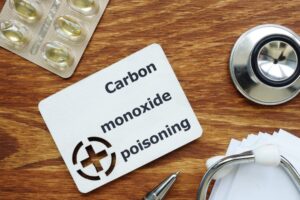
You or a loved one may have become sick from exposure to a toxic substance on the property. Carbon monoxide is an example of a particularly deadly substance that can cause injury or death. The property owner must properly maintain large appliances, such as heaters, and have working carbon monoxide detectors that alert you of elevated and dangerous levels.
Carbon monoxide poisoning is known as the silent killer because someone exposed may not even know that they are in danger. They may never realize the deadly substance is in the air until too late. In addition, you may have had exposure to other types of toxic chemicals on a property that can make their way into the air. These chemicals can cause injuries and serious illnesses.
Who Can I Sue in a Premises Liability Lawsuit?
Usually, the property owner is the one to blame for your premise liability injuries. They are the ones who are in control of the property and should have prevented your injuries by exercising due care.
In some cases, the property owner is not in control of the property on a day-to-day basis. For example, the owner may have leased the property out to a store owner, who is responsible for the safety of the property. In that case, the tenant is to blame for your premises liability injuries.
Your premises liability lawyer will review the facts of your case to help determine who the responsible party is. There may even be more than one potential defendant, and a premises liability attorney will advise you to take legal action against each one of them.
The Legal Rule in a Premises Liability Case
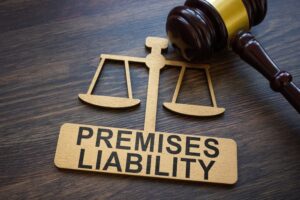
No matter what type of premises liability claim you have, the legal rule will always be the same (albeit with different variations). You must prove that the person or company you are filing the claim against was negligent. Here, you must show that the responsible party failed to live up to their duty of care by doing something unreasonable under the circumstances.
When you file a premises liability claim, you have the burden of proof to demonstrate negligence. You will meet your burden by gathering evidence about what the responsible party did and comparing it to what a reasonable person would have done under the circumstances. The type of evidence that can help you win your case can vary based on your claim type. In some cases, you will need proof showing that a property owner knew of the risks posed by certain dangers and did nothing to resolve them or give you any warning.
How Much Is My Premises Liability Case Worth?
Your premises liability claim can be worth a considerable amount of money. In many instances, the accident happened on the property of a business. Companies should have general liability insurance and often carry much coverage to protect their assets.
Besides the insurance coverage available, your injuries will also control how much you may receive in a settlement. You can receive payment for both your past and future damages with personal injury compensation.
Your premises liability compensation can include:
-
- Medical expenses
- Lost earnings
- Pain and suffering
- Embarrassment and humiliation
- Scarring and disfigurement
- Emotional distress
If your loved one died in a premises liability accident, your family may be eligible for wrongful death compensation to pay you back for what you lost when a loved one passed away.
How a Premises Liability Attorney Can Help You
There are many moving pieces in any premises liability case. Insurance companies are among the most challenging barriers, and they stand between the compensation you may deserve.
Whether you are dealing with an individual homeowner or a business, chances are they had an insurance policy covering the damages. Insurance companies will step into the picture because they must defend their policyholder in a claim or lawsuit. Dealing with insurance companies presents complications because they are for-profit businesses with financial interests.
When you hire a premises liability lawyer for your case, they will do the following:
- Investigate your accident and gather evidence that you can use to prove your claim.
- Quantify your damages to know how much to seek in a claim or lawsuit.
- Draft a claim or lawsuit complaint and file it on your behalf.
- Deal with the insurance company to avoid making a mistake that can harm your case.
- Negotiate your compensation with the insurance company, advise you to reject offers that do not fairly pay you, and make counteroffers on your behalf.
- Pursue your case in court through the litigation process if your premises liability attorney believes it is in your best interests.
Hire a Premises Liability Attorney Now
Now is the time to get legal help from a premises liability lawyer if you have yet to contact an Langston & Lott attorney. You do not have to pay anything out of pocket to get the legal help you need from a premises liability attorney. They work on a contingency basis, meaning they do not require upfront payment for their services. Instead, they agree to take a percentage of any settlement or verdict they obtain on your behalf.
A premises liability lawsuit can be a complex and challenging endeavor. By hiring a lawyer, you can benefit from their experience, ability to gather evidence and negotiation skills. With a personal injury lawyer on your side, you can focus on your recovery while they fight for your rights and seek the compensation you deserve. Do not deal with the legal system alone – reach out to a lawyer with experience in premises liability cases and get the help you need.
